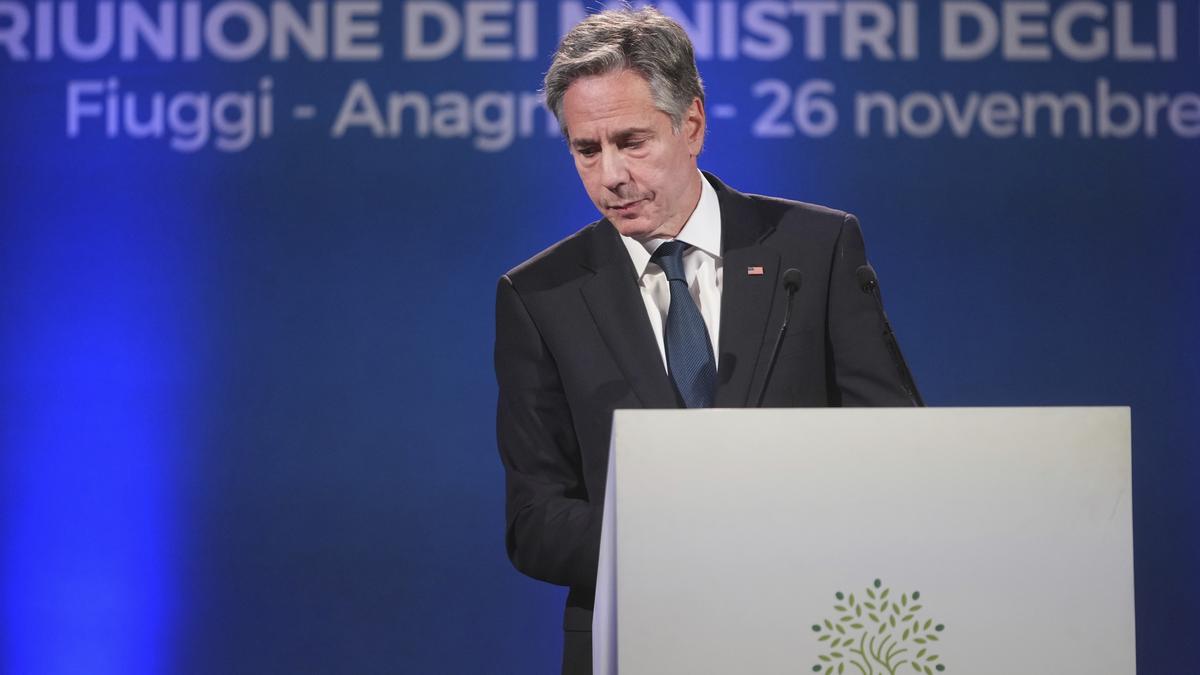
G7 ministers throw support behind Israel-Hezbollah ceasefire but make no mention of ICC warrant
The Hindu
G7 ministers support ceasefire between Israel and Hezbollah, avoid addressing ICC arrest warrant for Israeli leader.
Foreign Ministers from the world's leading countries threw their strong support on Tuesday (November 26, 2024) behind an immediate ceasefire between Israel and the Lebanese militant group Hezbollah but sidestepped a key question after the International Criminal Court issued an arrest warrant for Israel's leader over the war in Gaza.
At the end of their two-day summit outside Rome, the Group of Seven Ministers didn’t refer explicitly to the Hague-based court and its arrest warrants on charges of crimes against humanity for Israeli Prime Minister Benjamin Netanyahu and his former Defence Minister, Yoav Gallant.
The warrants said there was reason to believe Mr. Netanyahu and Mr. Gallant have used “starvation as a method of warfare” by restricting humanitarian aid and have intentionally targeted Palestinian civilians in Israel’s war with Hamas in Gaza — charges Israeli officials deny.
Also Read: Israeli strike kills Lebanese soldier and wounds 18 as Hezbollah fires rockets at Israel
Italy had put the ICC warrants on the official G7 meeting agenda, even though members were split on the issue. The U.S., Israel’s closest ally, isn’t a member of the court and has called the warrants “outrageous.” All the other G7 countries are signatories and are obliged to respect and implement the court's decisions.
The final statement adopted by the ministers said Israel, in exercising its right to defend itself, “must fully comply with its obligations under international law in all circumstances, including international humanitarian law.”
And it said all G7 members — Canada, France, Germany, Italy, Japan, the United Kingdom and the United States — “reiterate our commitment to international humanitarian law and will comply with our respective obligations.”

The 29th edition of the Conference of Parties (COP29), held at Baku in Azerbaijan, is arguably the most important of the United Nations’ climate conferences. It was supposed to conclude on November 22, after nearly 11 days of negotiations and the whole purpose was for the world to take a collective step forward in addressing rising carbon emissions.










